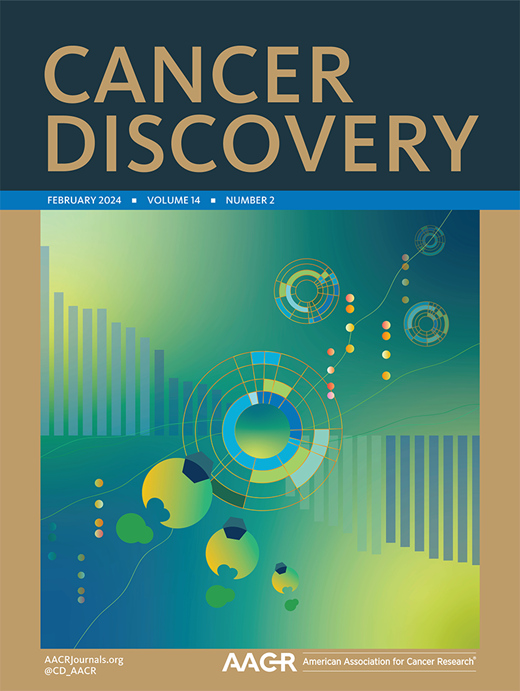Evolving CAR T-Cell Therapy to Overcome the Barriers in Treating Pediatric Central Nervous System Tumors
IF 33.3
1区 医学
Q1 ONCOLOGY
引用次数: 0
Abstract
Central nervous system (CNS) tumors are a leading cause of pediatric cancer-related death. Chimeric antigen receptor (CAR) T cells are an innovative approach for these affected children who are in desperate need of novel therapies, but CNS-directed cellular therapies have only recently advanced to the clinic. Although early-phase trials have begun to demonstrate the feasibility of manufacturing fractionated doses and the tolerability of repeated infusions for children with CNS tumors, major challenges remain. In this review, we will take an inventory of the current state of the pediatric CNS CAR T-cell field through the lens of translational obstacles to broader clinical success. Significance: CNS tumors are the leading cause of cancer-related death in children, highlighting the dire need for new treatment strategies. CAR T cells represent a unique approach, distinct from the cytotoxic chemotherapies and small-molecule inhibitors that have dominated the clinical trial space for decades. Phase I CAR T-cell trials have shown feasibility and possible efficacy against pediatric CNS tumors; however, many challenges must be overcome if these therapeutics are going to be beneficial to most affected children. Although rapid translational development and early-phase trials have quickly evolved our understanding, the pediatric CNS CAR T-cell community now yearns for critical assessments and open dialogue about overcoming the remaining obstacles ahead.不断发展的CAR - t细胞疗法克服治疗小儿中枢神经系统肿瘤的障碍
中枢神经系统(CNS)肿瘤是儿童癌症相关死亡的主要原因。嵌合抗原受体(CAR) T细胞对于这些迫切需要新疗法的患儿来说是一种创新的方法,但中枢神经系统导向的细胞疗法直到最近才进入临床。尽管早期试验已经开始证明制造分次剂量的可行性和反复输注用于患有中枢神经系统肿瘤的儿童的耐受性,但主要挑战仍然存在。在这篇综述中,我们将通过转化障碍的视角对小儿中枢神经系统CAR - t细胞领域的现状进行盘点,以获得更广泛的临床成功。意义:中枢神经系统肿瘤是儿童癌症相关死亡的主要原因,迫切需要新的治疗策略。CAR - T细胞代表了一种独特的方法,不同于几十年来主导临床试验领域的细胞毒性化疗和小分子抑制剂。I期CAR - t细胞试验显示了治疗小儿中枢神经系统肿瘤的可行性和可能的疗效;然而,如果这些治疗方法要对大多数受影响的儿童有益,就必须克服许多挑战。尽管快速的转化开发和早期试验已经迅速发展了我们的理解,但儿科CNS CAR - t细胞社区现在渴望进行关键评估和公开对话,以克服未来的障碍。
本文章由计算机程序翻译,如有差异,请以英文原文为准。
求助全文
约1分钟内获得全文
求助全文
来源期刊

Cancer discovery
ONCOLOGY-
CiteScore
22.90
自引率
1.40%
发文量
838
审稿时长
6-12 weeks
期刊介绍:
Cancer Discovery publishes high-impact, peer-reviewed articles detailing significant advances in both research and clinical trials. Serving as a premier cancer information resource, the journal also features Review Articles, Perspectives, Commentaries, News stories, and Research Watch summaries to keep readers abreast of the latest findings in the field. Covering a wide range of topics, from laboratory research to clinical trials and epidemiologic studies, Cancer Discovery spans the entire spectrum of cancer research and medicine.
 求助内容:
求助内容: 应助结果提醒方式:
应助结果提醒方式:


